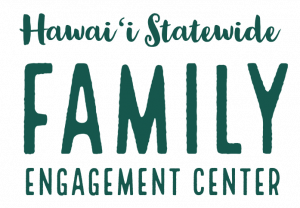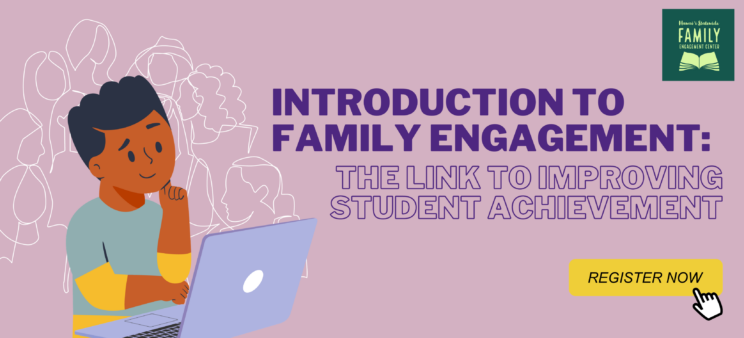
Center on Disability Studies
2022 - 2023 Annual Report
Hawai'i Statewide Family Engagement Center

The Hawai’i Statewide Family Engagement Center (HFEC and HFEC II) is a leader in the field of family, school, and community engagement, promoting family engagement (FE) as a learning and equity strategy for student and school improvement. HFEC supports schools and families through training and professional development, technical assistance, and resource development.
The purpose of HFEC is to implement high impact family engagement strategies, programming and policies that build powerful partnerships among family, school, and community. HFEC promotes Family Engagement as a learning and equity strategy to improve student academic success and school improvement.
What is Family Engagement?
Our center has adopted the Dual Capacity-Building Framework and the National Association for Family, School, and Community Engagement (NAFSCE) definition of family engagement:
- Family engagement is a shared responsibility in which schools and other community agencies and organizations are committed to reaching out to engage families in meaningful ways and in which families are committed to actively supporting their children’s learning and development.
- Family engagement is continuous across a child’s life and entails enduring commitment but changing parent roles as children mature into young adulthood.
- Effective family engagement cuts across and reinforces learning anywhere and anytime because children learn at home, in pre-kindergarten programs, at school, in after-school programs, in faith-based institutions, and in the community.
Introduction to Family Engagement: The Link to Improving Student Achievement
Registration Now Open for Online Course!

Introduction to Family Engagement is a free, self-paced, online, asynchronous course for educators and families developed by the Hawai‛i Statewide Family Engagement Center. Participants will be able to identify and adopt evidence-based family engagement practices that support their school’s current curriculum (within the unique Hawaiian context of the Nā Hopena A‛o Framework) in assessing and teaching ALL students, including those from culturally and linguistically diverse populations.